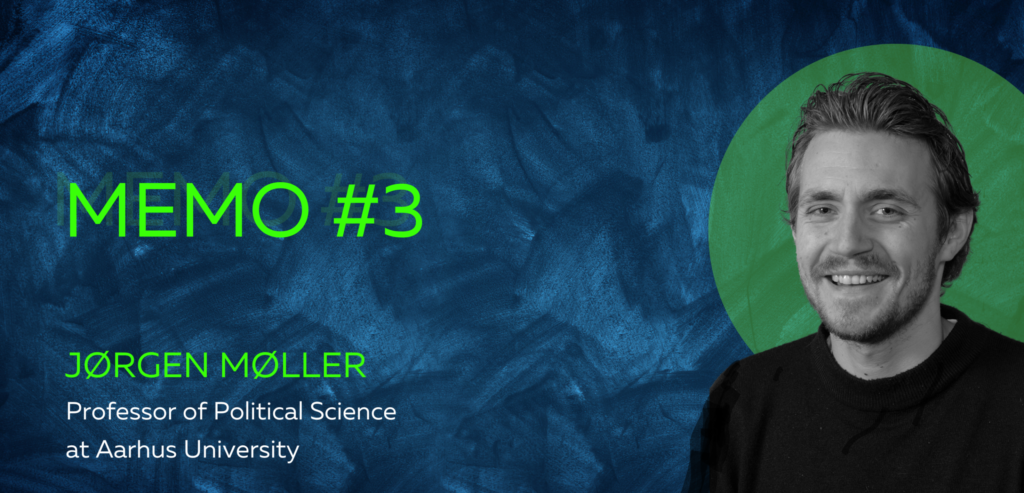“Peaceful transfers of power are actually the great historical contribution of modern representative democracy”
– Jørgen Møller
What is a characteristic of democracies deserve greater awareness or appreciation?
Read Jørgen Møller’s answer:
In Denmark, we have general elections at regular intervals; at least every four years according to the Constitution. During the election campaign, the waves often run high. Still, there are hardly many Danes who fear that the election will lead to civil war-like conditions, or that the prime minister who called the election will refuse to step down if they lose. We are so accustomed to power being handed over from one government to a new one in a tolerable way that we see it as a matter of course. But peaceful transfers of power are actually the great historical contribution of modern representative democracy.
As the Austrian philosopher Karl Popper has emphasised, democracy is the only form of government that makes it possible ‘to get rid of a government without bloodshed.’ In all other forms of government, it is ultimately brute force – violence or the threat of violence – that determines who rules. Historically, changes of power have therefore often been bloody affairs, and they still are in many of the world’s dictatorships. Representative democracy has civilised and pacified the change of power, and this is therefore the prerequisite for the peaceful societies we live in – societies where the political struggle is no longer fought with force of arms, but through election campaigns and voting.
